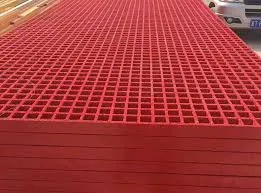
-
 Afrikaans
Afrikaans -
 Albanian
Albanian -
 Amharic
Amharic -
 Arabic
Arabic -
 Armenian
Armenian -
 Azerbaijani
Azerbaijani -
 Basque
Basque -
 Belarusian
Belarusian -
 Bengali
Bengali -
 Bosnian
Bosnian -
 Bulgarian
Bulgarian -
 Catalan
Catalan -
 Cebuano
Cebuano -
 China
China -
 China (Taiwan)
China (Taiwan) -
 Corsican
Corsican -
 Croatian
Croatian -
 Czech
Czech -
 Danish
Danish -
 Dutch
Dutch -
 English
English -
 Esperanto
Esperanto -
 Estonian
Estonian -
 Finnish
Finnish -
 French
French -
 Frisian
Frisian -
 Galician
Galician -
 Georgian
Georgian -
 German
German -
 Greek
Greek -
 Gujarati
Gujarati -
 Haitian Creole
Haitian Creole -
 hausa
hausa -
 hawaiian
hawaiian -
 Hebrew
Hebrew -
 Hindi
Hindi -
 Miao
Miao -
 Hungarian
Hungarian -
 Icelandic
Icelandic -
 igbo
igbo -
 Indonesian
Indonesian -
 irish
irish -
 Italian
Italian -
 Japanese
Japanese -
 Javanese
Javanese -
 Kannada
Kannada -
 kazakh
kazakh -
 Khmer
Khmer -
 Rwandese
Rwandese -
 Korean
Korean -
 Kurdish
Kurdish -
 Kyrgyz
Kyrgyz -
 Lao
Lao -
 Latin
Latin -
 Latvian
Latvian -
 Lithuanian
Lithuanian -
 Luxembourgish
Luxembourgish -
 Macedonian
Macedonian -
 Malgashi
Malgashi -
 Malay
Malay -
 Malayalam
Malayalam -
 Maltese
Maltese -
 Maori
Maori -
 Marathi
Marathi -
 Mongolian
Mongolian -
 Myanmar
Myanmar -
 Nepali
Nepali -
 Norwegian
Norwegian -
 Norwegian
Norwegian -
 Occitan
Occitan -
 Pashto
Pashto -
 Persian
Persian -
 Polish
Polish -
 Portuguese
Portuguese -
 Punjabi
Punjabi -
 Romanian
Romanian -
 Russian
Russian -
 Samoan
Samoan -
 Scottish Gaelic
Scottish Gaelic -
 Serbian
Serbian -
 Sesotho
Sesotho -
 Shona
Shona -
 Sindhi
Sindhi -
 Sinhala
Sinhala -
 Slovak
Slovak -
 Slovenian
Slovenian -
 Somali
Somali -
 Spanish
Spanish -
 Sundanese
Sundanese -
 Swahili
Swahili -
 Swedish
Swedish -
 Tagalog
Tagalog -
 Tajik
Tajik -
 Tamil
Tamil -
 Tatar
Tatar -
 Telugu
Telugu -
 Thai
Thai -
 Turkish
Turkish -
 Turkmen
Turkmen -
 Ukrainian
Ukrainian -
 Urdu
Urdu -
 Uighur
Uighur -
 Uzbek
Uzbek -
 Vietnamese
Vietnamese -
 Welsh
Welsh -
 Bantu
Bantu -
 Yiddish
Yiddish -
 Yoruba
Yoruba -
 Zulu
Zulu
frp spraying pipe
Understanding FRP Spraying Pipes Innovations in Composite Technology
In the realm of industrial applications, the demand for durable, resistant, and lightweight materials has led to significant advancements in technology. One of the standout solutions emerging from this technological evolution is the use of Fiber-Reinforced Plastic (FRP) spraying pipes. These pipes, made from composite materials, combine high strength with low weight, making them an excellent choice for various applications, including construction, chemical processing, and water management.
What is FRP?
Fiber-Reinforced Plastic, commonly known as FRP, is a composite material that consists of a polymer matrix reinforced with fibers. These fibers can be made from various materials, including glass, carbon, or aramid, each offering unique properties suited for different applications. The polymer matrix, typically epoxy, polyester, or vinyl ester, binds the fibers together, providing structural integrity to the composite.
FRP products possess superior mechanical properties, excellent corrosion resistance, and are lightweight compared to traditional materials like steel or concrete. This makes FRP particularly valuable in industries where weight reduction is crucial, and the potential for corrosion can lead to significant maintenance costs and failures.
The Advantages of FRP Spraying Pipes
FRP spraying pipes are crafted through a unique manufacturing process that allows for the creation of pipes with exceptional performance characteristics. Below are some advantages of using FRP spraying pipes
1. Corrosion Resistance One of the most significant benefits of FRP is its resistance to corrosive environments. FRP pipes are impervious to chemicals, making them ideal for transporting aggressive fluids in chemical processing and waste management applications.
2. Lightweight FRP pipes are significantly lighter than their metal counterparts. This reduces installation costs and allows for easier handling, transport, and installation, which can be critical in projects with limited access or heavy machinery.
3. High Strength-to-Weight Ratio Despite being lightweight, FRP pipes offer a high strength-to-weight ratio. They can withstand considerable pressure, making them suitable for high-pressure applications.
frp spraying pipe

4. Flexibility The manufacturing process of FRP allows customization in terms of thickness, diameter, and length. This adaptability means that FRP pipes can be tailored to meet specific project requirements.
5. Durability and Longevity FRP materials have an extended lifespan compared to traditional materials. The durability of these pipes reduces the need for frequent replacements, leading to lower lifecycle costs.
6. Thermal Insulation FRP pipes provide good thermal insulation properties, helping to maintain the temperature of the fluids transported within them, which can be beneficial in certain industrial processes.
Applications of FRP Spraying Pipes
The versatile properties of FRP spraying pipes make them applicable across various sectors
- Chemical Plants Due to their corrosion resistance, these pipes are widely used in chemical processing facilities for transporting corrosive fluids, thereby enhancing safety and reducing maintenance costs. - Water Treatment FRP pipes are employed in water treatment plants for transporting water, sewage, and sludge, where resistance to microbial growth and environmental factors is crucial.
- Oil and Gas In the oil and gas industry, FRP pipes are used for transporting hydrocarbons and as protective casings, particularly in offshore installations where corrosion is a major concern.
- Construction FRP pipes are increasingly used in construction for drainage systems and as conduits due to their strength and lightweight nature.
Conclusion
As industries continue to seek innovative materials to enhance operational efficiency and reduce costs, FRP spraying pipes stand out as a prime choice. Their blend of durability, resistance to environmental factors, and lightweight properties make them an ideal solution for various applications. With ongoing advancements in composite technology, the future holds even greater potential for FRP materials, making them a staple in modern engineering and industrial design. The adoption of FRP spraying pipes signifies a move towards more sustainable and efficient practices, further solidifying their importance in today’s industrial landscape.









